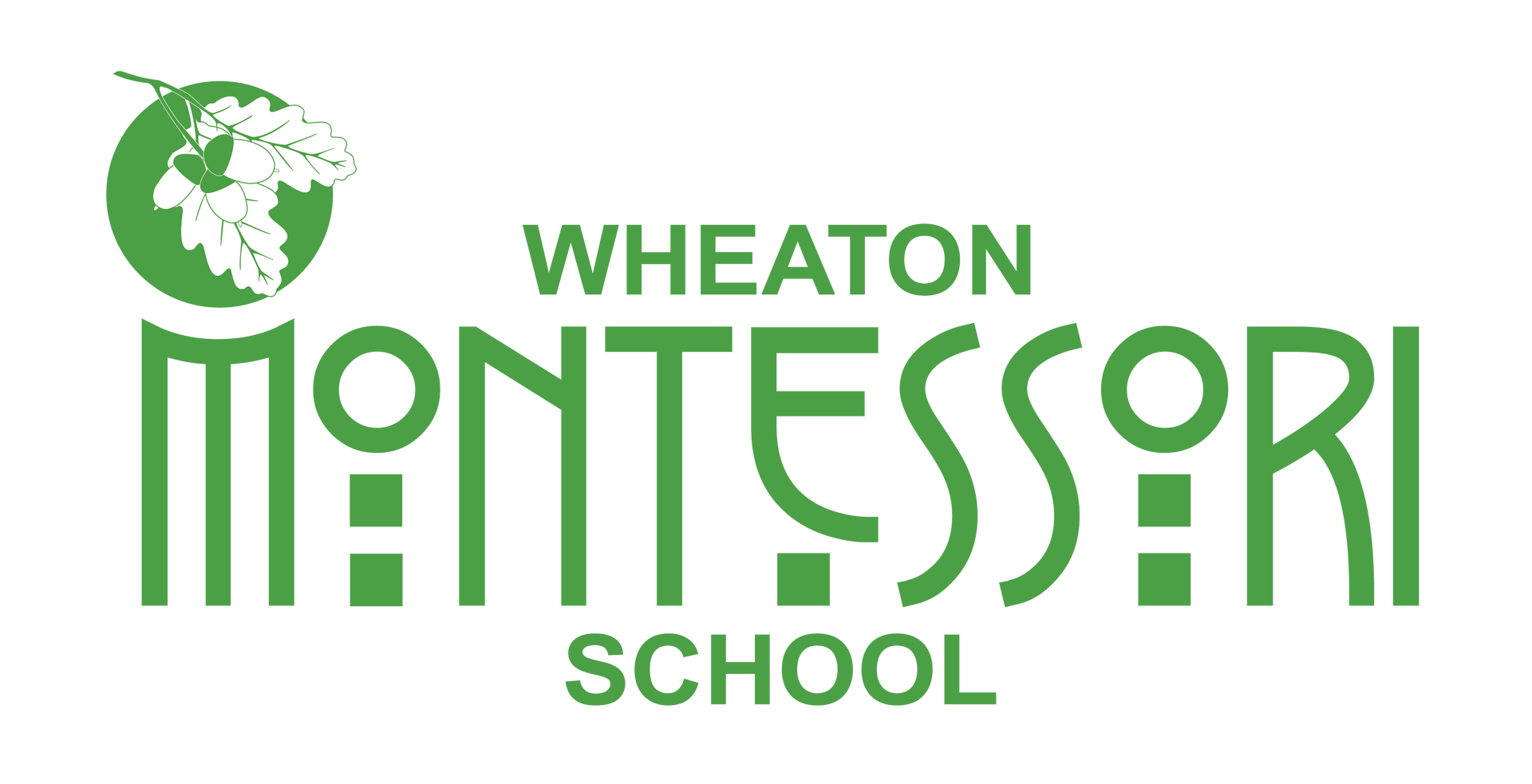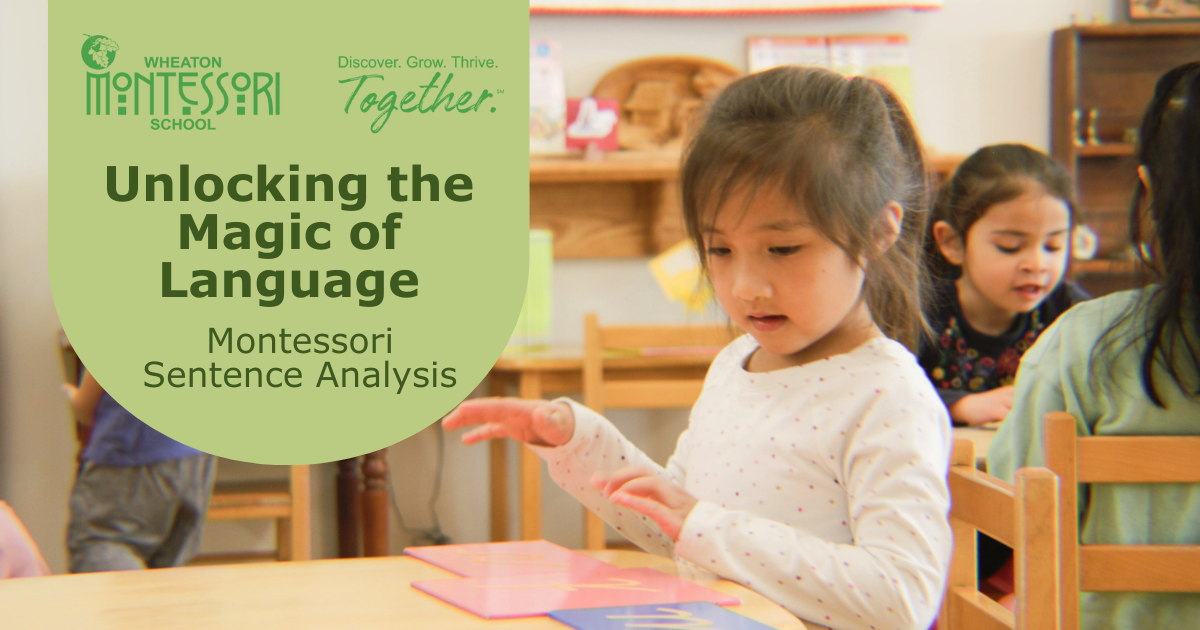
There is no “perfect” parenting trick that will eliminate all tantrums, tears, power struggles, or disappointments. However, some strategies can ease discomfort and make these incidents easier to manage. Difficult moments in parenting and childhood arise from the inherent challenges of relationships, not from unmet desires or deficiencies in parenting or human nature. These experiences are a natural part of life and essential for growth.
Our children are hard-wired to test boundaries. They do this while simultaneously wanting assurance that they are accepted and belong. While this tendency may try our patience, it helps us to remember that children want to know that we can maintain both limits and connection.
Over the last 25 years, we have found four key approaches that can be used individually or in tandem to manage uncomfortable parent/child moments, strengthen relationships, and add joyful moments at Wheaton Montessori School. In this four-month series, we will highlight the four key strategies that work within our classroom communities to allow each person to be their best self. These strategies are Understanding Mistaken Goals, Using Playful Parenting, Scheduling Special Time, and Creating Visual Routines that can help re-establish relationships, provide clarity of expectations and routines, and help children feel understood and valued. And remember, these tools we offer are not to eliminate all childhood discomforts but to provide ways to feel connected in our parent/child relationships, which will ease the rough moments. In this blog, we will focus on Understanding Mistaken Goals.
Understanding Mistaken Goals
What a title, right!?! Sometimes, if we can understand what our children are trying to achieve through their repeated misbehaviors, we can address these underlying needs. Rudolf Dreikurs identifies how many unwanted behaviors stem from four mistaken goals: the desire for attention, the need for power, the hunger for revenge, and the assumption of inadequacy.
If children’s goal is attention, the coded message behind the behavior is "notice me" or "involve me usefully.” If the need is power, their behavior conveys that they need meaningful ways to contribute. If children are trying to get revenge, they are communicating they are hurting or need their feelings recognized. When their goal is assumed inadequacy, expressed by giving up or wanting to be left alone, the message behind their behavior is a need for others to believe in their capability and guide them with incremental steps toward success.
How do we know which goal the unwanted behavior stems from? We tend to have emotional responses when our children misbehave, and those feelings are the key to breaking the code of behavior. We recommend using this Mistaken Goal chart. Use the first column to identify how we feel when faced with the behavior. The subsequent columns (such as how we tend to react and our child’s response) help focus on the possible mistaken goal. Then, the chart also helps identify the possible beliefs behind the behavior, how adults feed the belief or behavior, the underlying message, and proactive and empowering responses to shift the behavior. Again, these behaviors can be normal parts of maturing, but if they are consistently getting in the way of good relationships and increasing skillsets, as adults we must look for ways to assist.
Pausing and remembering that misbehavior is a form of communication can help us respond to our children in more supportive ways.
Parenting can be an emotionally exhausting experience, with each worrying behavior feeling monumental. One of the gifts of these strategies is that they can also help you prioritize the relationship moments instead of the hurdles you hope to be finished with soon. Reconnect to the joy of raising these amazing (and challenging) beings!
We love sharing insights and ideas about supporting children! And often watching your children in our classrooms refreshes your confidence that you are doing enough, you are enough, and your children are loved!
Current families are encouraged to schedule their classroom observations by clicking on the links below.
Adolescent Community Classroom Observation
Ms. Searcy’s Upper Elementary Classroom Observation
Mrs. Fortun’s Lower Elementary Classroom Observation
Mrs. Mayhugh’s Lower Elementary Classroom Observation
Mrs. Berdick’s Primary Classroom Observation
Mrs. McClelland's Primary Classroom Observation
Ms. Chiste’s Primary Classroom Observation
Mrs. Rogers’s Primary Classroom Observation
Prospective families with toddlers and children under 4 are encouraged to sign up for a school tour to explore the advantages of our Primary Program, which lays the essential foundation for our Elementary and Adolescent Community Programs.
Open enrollment for summer and fall 2025 will be throughout April and is based on availability for eligible early childhood students. There are limited spots available for new children aged 4 and under for the upcoming summer and fall.
Individual school tours for kindergarten through 9th grade are not available, and the waitlist remains closed for the 2025-2026 School Year. The only exception is considered for students transferring from AMI-accredited Montessori schools that have maintained continuous attendance.


